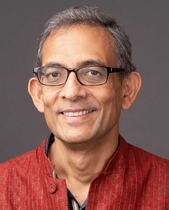
Making Aid Work
Making Aid Work is a book that presents the potential of foreign aid to reduce poverty and a challenge to all aid organizations to think harder about how they spend their money. With arguments and analyses about which programs really work causes considerable waste and inefficiency, it also involves the model used to evaluate new drugs before they can come on the market. He argues that donors should assess programs with field experiments using randomized trials. Responding to this challenge, leaders in the field raise the importance of aid for economic development and the kinds of interventions that will lead to real improvements in the lives of poor people around the world.
Table of Contents
I.
II.
"We must tackle development problems at the level of the economy as a whole"...Ian Goldin, F. Halsey Rogers, and Nicholas Stern
"The new private philanthropies could challenge the existing aid business"...Mick Moore
"There is a huge gap between the expert consensus and the political push for more aid"...Ian Vasquez
"Evidence-based aid must not become the latest in a long string of development fads"...Angus Deaton
"Another big problem must be taken into account: the lack of skilled jobs"...Alice H. Amsden
"Banerjee's approach might teach us more about impact but at the expense of larger matters"...Robert H. Bates
"Development aid will never succeed without the support and ownership of its recipients"... Carlos Barbery
"Technical rigor must not take precedence over other kinds of valuable lessons"...Howard White
"If it is hard to think of aid being spent productively in Africa, why not spend elsewhere for Africa?"...Jagdish Bhagwati
"The global poverty challenge is social and political as well as technological"...Raymond C. Offenheiser and Didier Jacobs
"The aversion to recognizing unfavorable results is woven into the fabric of most bureaucracies"...Ruth Levine
III.
Abhijit Vinayak Banerjee responds: "The best argument for the experimental approach is that it spurs innovation"
About the Contributors

